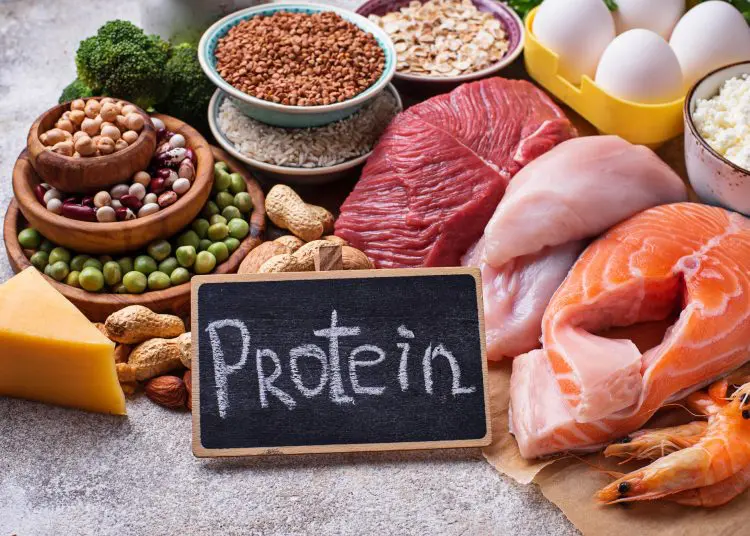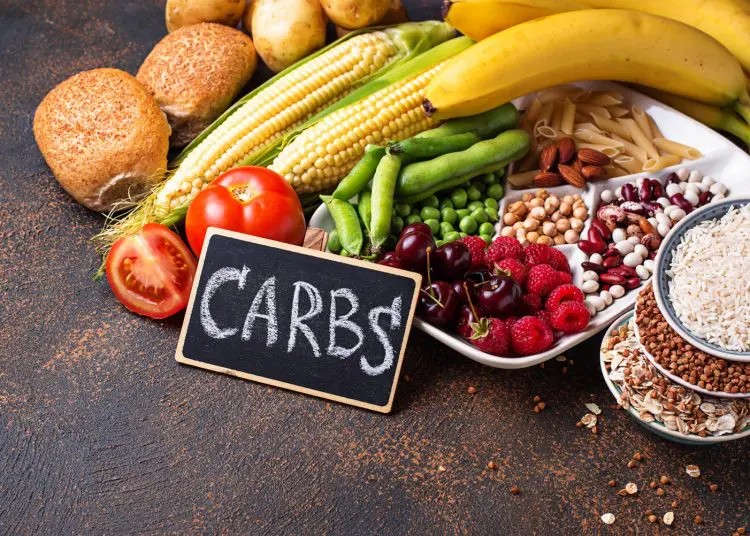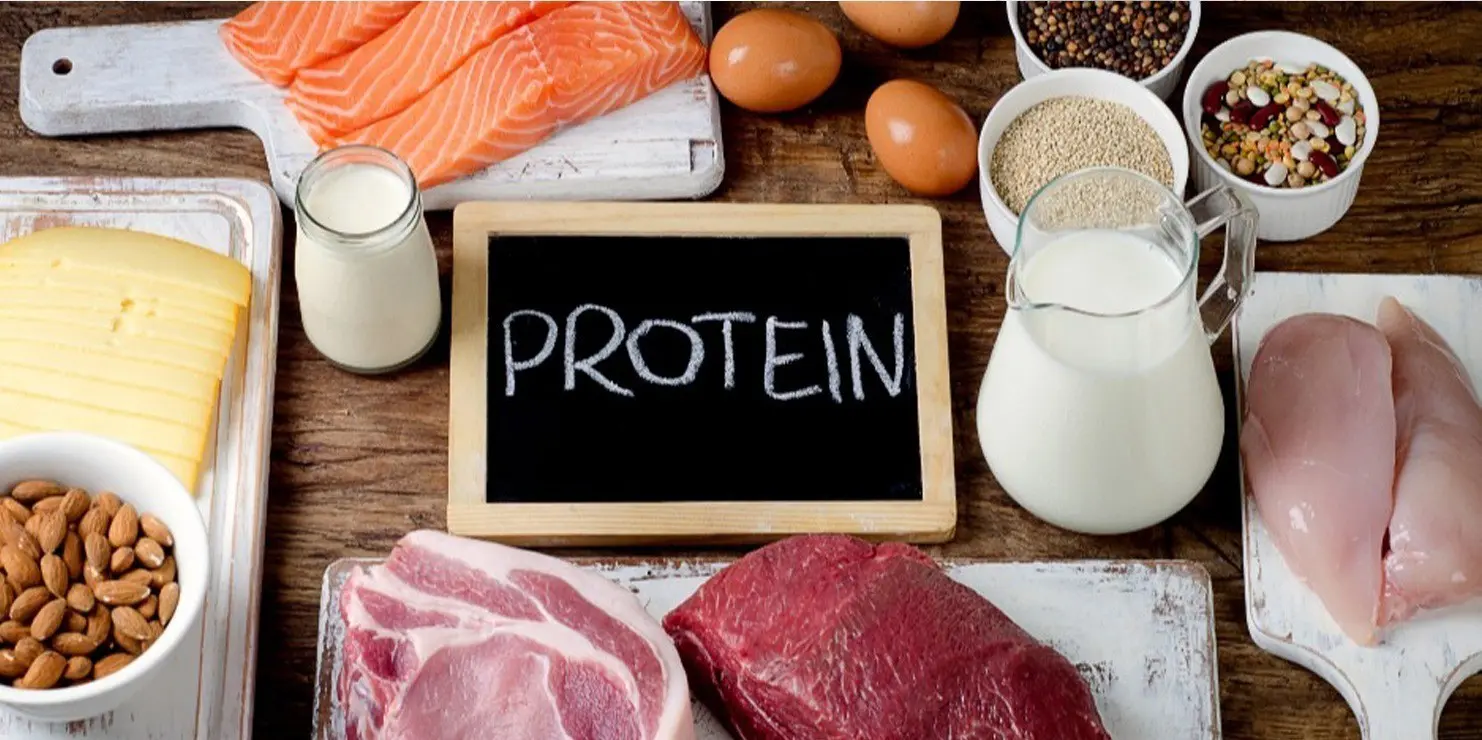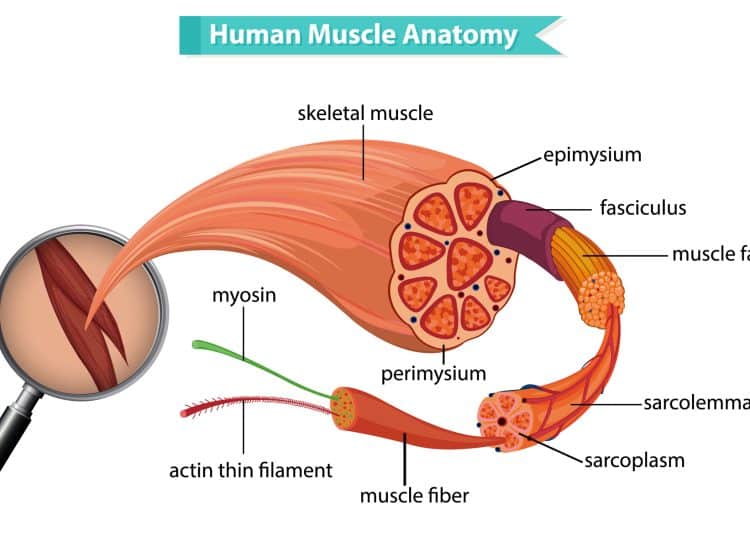Protein is often touted as the most important macronutrient for building muscle. Bodybuilders and strength athletes are frequently advised to consume very high amounts of protein, sometimes upwards of 1-2 grams per pound of body weight. But is more protein really better when it comes to optimizing muscle growth?
This comprehensive guide takes an in-depth, evidence-based look at protein and muscle building. Discover the real science behind protein intake for muscle growth, including:
The Basics: Protein Metabolism and Muscle Growth
Muscle growth occurs when muscle protein synthesis exceeds muscle protein breakdown over time, resulting in a positive net protein balance. Both resistance training and protein intake play key roles in stimulating muscle protein synthesis and promoting hypertrophy.
It’s logical to assume that more protein means more muscle growth. But the relationship is far more complex than that simple equation. There are diminishing returns with excessive protein intake, and muscle growth is highly dependent on being in a calorie surplus.
To understand the role of protein in muscle building, it’s helpful to first understand some basics of protein metabolism:
- Muscle protein turnover: Muscle proteins are constantly being broken down and rebuilt. These processes of muscle protein breakdown (MPB) and muscle protein synthesis (MPS) occur independently.
- Net protein balance: The net balance between MPB and MPS determines changes in muscle mass over time. If MPS exceeds MPB, there is a positive net protein balance and muscle growth occurs.
- Resistance training: Lifting weights stimulates MPS and tips the balance towards positive net protein balance. Providing protein around workouts enhances this effect.
- Protein intake: Consuming protein provides amino acid building blocks to sustain elevated MPS rates. But the relationship plateaus with higher intakes.
Maximizing muscle growth requires the right combination of proper resistance training, strategically timed protein intake, and adequate energy and calories. Next we’ll look at the evidence on how much protein is really needed.
How Much Protein Do You Really Need? The Research

Many experienced bodybuilders and strength athletes consume protein intakes upwards of 1-2 grams per pound of body weight or more. But a deep dive into the research reveals the real protein needs for muscle growth are actually much lower:
Nitrogen Balance Studies Suggest Moderate Needs
Much of the early research used nitrogen balance studies to estimate protein requirements. Since protein contains nitrogen, nitrogen balance was used as a proxy for protein needs.
Nitrogen balance studies suggest that a moderate protein intake between 1.2-1.6 grams per kg of body weight (0.5-0.7 grams per pound) is sufficient for building muscle in strength training individuals.
While nitrogen balance isn’t a perfect assessment of actual protein requirements, these studies clearly demonstrate that massive protein intakes are unnecessary for building muscle.
Direct Studies Confirm 0.5-0.7 Grams Per Pound Is Sufficient
More recent studies have directly compared muscle growth and strength gains with protein intakes in the range of 1.2-1.6 grams per kg of body weight (0.5-0.7 grams per pound).
For example, one study compared strength and muscle mass changes in resistance trained individuals consuming protein at either 1.2 g/kg/day or 2.4 g/kg/day over a 3 month training period.
The researchers found no significant differences in muscle growth or strength gains between the moderate and high protein groups. Both groups gained muscle and strength similarly.
Multiple studies have found these moderate protein intakes support lean mass gains and maximize rates of MPS. Consuming more protein does not further enhance muscle growth or strength.
Muscle Protein Synthesis Plateaus at 0.6 Grams Per Pound
Research also demonstrates that the muscle protein synthetic response plateaus at a certain amount of protein. Consuming protein above that amount provides no further stimulation of MPS.
Based on several metabolic studies, that plateau appears to be around 0.24-0.30 g/kg of body weight, or about 10-12 grams of protein. For a 175 pound person, that translates to 0.55-0.68 grams of protein per pound of body weight.
Consuming protein or amino acids above this threshold does not enhance MPS rates or yield greater muscle growth. More is not better.
Takeaway on Protein Needs
Taken as a whole, the body of evidence suggests a daily protein intake range of 0.5-0.7 grams per pound, or 1.2-1.6 grams per kg, is sufficient to maximize muscle growth and strength gains from resistance training.
Consuming protein above this amount provides no further benefit in terms of muscle protein synthesis or lean mass accrual. Next we’ll look at some of the downsides of excessive protein intakes.
Read also: Find Your Daily Protein Intake
Potential Downsides of Extremely High Protein Intakes
Chasing excessive protein intakes beyond 0.7 grams per pound can negatively impact diet quality and performance in other ways:
Displacing Other Nutritious Foods
To allow dramatically elevated protein intake while keeping calories in check, intake of other foods like fruits, vegetables, whole grains, legumes, nuts and seeds is typically restricted.
This increases the risk of certain micronutrient deficiencies over time if care is not taken to supplement where needed. Nutrient density suffers on very high protein diets.
Impaired Carbohydrate Intake
Carbohydrates provide important performance fuel. As a key energy source for the brain and muscles, adequate carb intake supports training intensity and work capacity.
Limiting carbohydrate foods to make room for more protein can impair strength output, workout performance, power production and endurance. This compromises the muscle growth stimulus induced by resistance training.

Read also: Find Your Carbohydrate Intake Calculator
Unnecessary Calorie Intake
Excess calories consumed from extremely high amounts of protein are often stored as body fat, not used to build additional muscle mass. Some protein is converted to glucose via gluconeogenesis as well.
This can lead to unnecessary fat gain, interfering with efforts to stay lean during muscle building phases.
Other Potential Issues
Evidence is mixed, but some studies suggest there may be other risks like increased calcium excretion, liver and kidney strain, and GI issues with excessive protein intakes above 2-3 grams per kg (1 gram per pound).
However, these effects appear to be most relevant to those with pre-existing kidney issues. Healthy individuals can process high protein intakes more effectively.
Optimizing Protein Intake for Muscle Growth
Rather than chasing excessive amounts, there are ways to strategically optimize protein intake for maximizing muscle growth within the context of a proper resistance training program.
Provide Sufficient Energy and Calories
Consuming adequate calories to support muscle protein synthesis and accumulation is more important than simply maximizing protein intake. Don’t sacrifice sufficient energy intake.
To support lean mass gains, aim for a moderate calorie surplus of around 10-20% above maintenance levels, or about 300-500 extra calories daily. Aim to gain 0.25-0.5% of your body weight weekly.
Some emerging research suggests that the distribution of protein across meals may enhance 24-hour muscle protein synthesis as well. Spreading protein fairly evenly across breakfast, lunch and dinner better stimulates MPS than skewing most protein towards the evening meal.
Protein Intake Recommendations
Aim for 0.6-0.7 grams of protein per pound of body weight. This optimizes muscle protein synthesis while avoiding excessive intake.
Emphasize high-quality, nutrient-dense proteins like lean meats, poultry, fish, eggs, dairy (milk, yogurt, cheese), and plant sources like beans, legumes, nuts, seeds, and soy foods.
Supplements like whey, casein, egg protein and pea protein can also be useful to help meet daily protein needs, especially around workouts.
Time Protein Intake Around Workouts
Consuming 20-40 grams of protein pre and post workout is recommended to maximize muscle protein synthesis. Whey, casein, and plant proteins are all effective options.
If working out first thing fasted, aim for around 40 grams of protein pre-workout, followed by another 40 gram serving after training. Casein or whey mixes well in shakes.
For those who train later in the day after a meal, the pre and post workout protein doses can be a bit lower at around 20-30 grams.
Optimize Your Amino Acid Intake
Consuming extra leucine, a key branched chain amino acid (BCAA), can further boost muscle protein synthesis. 3-5 grams taken along with protein pre or post workout is an effective strategy.
BCAAs reduce muscle protein breakdown during workouts. They enhance mTOR activation for increased muscle building after training.
Timing matters for BCAA intake. One study found taking 5 grams of BCAAs along with 6 grams of whey protein before resistance training elevated mTOR signaling more than whey protein alone.
Additional Strategies to Optimize Protein Intake
Here are some other methods that can help optimize protein consumption for improving body composition:
- Increase protein at breakfast – Consuming around 30-40g of protein at breakfast may improve satiety, reduce hunger cravings during the day, and support better body composition over time.
- Have casein protein before bed – Slow digesting casein protein taken 30-60 minutes pre-sleep maintains elevated MPS overnight and limits muscle protein breakdown. 20-40g is sufficient.
- Take creatine monohydrate – Creatine supports faster muscle growth and strength gains from resistance training. It may also augment the effects of protein supplementation. 3-5 grams daily is recommended.
- Emphasize protein post-workout – Focus on higher protein recovery meals after training since MPS is enhanced. Aim for at least 0.25-0.3g/kg (0.1-0.14g/lb) of protein in these meals.
- Don’t overdo protein while cutting – Higher protein during calorie restriction helps retain lean mass. But excessive amounts beyond 0.7-1g/lb provide no added benefit.
Summary: Key Takeaways on Optimizing Protein Intake
Here’s a summary of the key evidence-based takeaways for optimizing protein intake to build muscle:
- For strength training individuals, aim for 0.6-0.7 grams of protein per pound of body weight daily from high quality sources. More protein is unlikely to provide additional benefits.
- Spread protein intake fairly evenly throughout the day – say 25-40g at each meal. Don’t just load protein at night.
- Time protein consumption around workouts – aim for 20-40g pre and post workout to maximize MPS.
- Lean meats, dairy, eggs, fish and plant proteins provide optimal quality protein and nutrition. Supplement where needed.
- Focus on being in a calorie surplus with adequate carbs – energy balance drives muscle growth.
- Avoid unnecessary fat gain – a 300-500 calorie surplus is plenty. Slowly increase calories if gaining too fast.
- BCAAs like leucine and creatine monohydrate can provide an additional muscle building edge.
By focusing on the right protein intake strategies rather than overemphasizing total protein quantity, you can build lean muscle effectively and efficiently.
Frequently Asked Questions
Here are answers to some frequently asked questions about protein and muscle building:
Do I need more protein to build muscle if I’m bigger?
No, protein requirements are believed to be absolute amounts independent of body size based on metabolic studies on MPS. A 180 lb trainee doesn’t need more protein than a 130 lb trainee.
Aim for 0.6-0.7g per pound whether your goal is to go from 130 to 150 lbs or 200 to 220 lbs. The factors are the same.
That said, a bigger trainee will likely need more total calories to continue gaining muscle in a surplus, so absolute protein intake is higher. But it’s not proportional to their larger body size.
Do I need more protein as I become more muscular?
You may need more total protein as you gain substantial muscle mass because your overall calorie intake must increase to continue building muscle in a surplus.
But the evidence suggests you don’t require a higher protein intake relative to body weight as you become more muscular. The 0.6-0.7 grams per pound of target stays the same.
Does more protein help retain muscle in a calorie deficit?
Yes, increasing protein intake to ~1 gram per pound (2.2 g/kg) helps better retain lean muscle mass when cutting. This is because the higher protein intake offsets the rise in muscle protein breakdown that occurs in hypocaloric conditions.
However, there is no added benefit to going above 1g/lb for retaining muscle when dieting according to metabolic studies. The major focus should be on maintaining resistance training intensity and volume when cutting.
When should I have my largest protein meal?
Due to circadian fluctuations in hormone levels, having a larger protein meal in the evening may be beneficial for muscle growth compared to eating most protein earlier in the day.
However, the evidence is not totally conclusive on timing. The most important factor is likely hitting your daily protein target and focusing on pre/post workout protein around training sessions whenever they occur.
Are protein powders better than food for muscle building?
While convenient, protein supplements are not necessarily superior for muscle building compared to whole food protein sources. As long as leucine thresholds and daily protein targets are met through a combo of foods + supplements as needed, the anabolic response will be similar.
Aim for a minimum of ~2-3g of leucine per meal. It takes about 25-30g whey or 3 oz chicken breast or fish fillet to provide this leucine dose to maximize MPS.
Do plant proteins work as well as animal proteins?
Yes, you can absolutely build muscle effectively with plant-based protein sources. As long as essential amino acid thresholds (especially leucine) are met, plant proteins stimulate MPS similarly to animal proteins.
Plant protein sources like soy, rice, pea and hemp contain all the essential amino acids needed for muscle building, though amounts vary. A variety will ensure higher quality overall amino intake.
What about nutrient timing – does it matter?
Nutrient timing influences muscle building mainly around workouts. You’ll maximize MPS by consuming protein shortly before or after resistance training.
But timing becomes less important if you’re hitting daily protein intake targets as your body has a fairly long window for protein turnover. As long as you get pre/post workout protein, precise timing matters less.
More on Protein:
- Chicken Protein Calculator
- Calories Per Gram Calculator
- 7-Day High-Protein Diet Plan for Weight Loss
- How Much Protein Is in A Pound of Ground Beef?
- 8 Best Protein Chips of 2024 (Tasted and Ranked)
- Pea Protein vs. Whey Protein – Which One is Better
- Protein Shakes: Before or After a Workout?
- 8 Best Casein Protein Powders for Your Post-Workout
The Bottom Line on Protein Intake for Muscle Growth
Despite aggressive protein intake recommendations that have pervaded fitness communities and muscle building circles, the research clearly shows that more is not necessarily better when it comes to protein.
Consuming more than 0.6-0.7 grams per pound of protein daily provides no further benefit for maximizing muscle protein synthesis rates or boosting muscle growth from resistance training.
In fact, excessive protein intakes can displace other important nutrients, lead to unnecessary calorie consumption, and potentially impair performance.
Rather than focusing solely on eating as much protein as possible, give more attention to proper workout nutrition and optimizing your intake around training. Timed protein consumption pre and post workout along with sufficient calories is crucial for muscle building success.
By adopting an evidence-based approach to protein intake, you can achieve your muscle building goals effectively without getting overzealous with protein quantity. Remember that quality matters more than sheer quantity.
Tip: If you're signed in to Google, tap Follow.











I’ve heard hints of this for a while ( the idea that needing x grams of protein per day is a ‘lie’ ) …. but this is the first evidence based article with sources that seems to support this claim. I’m still skeptical ( my biggest weight gain period in life was when I was about 30 years old and I was eating a ton of almonds every day and lifting ) but I’m definitely going to keep reading. Thanks for writing this !